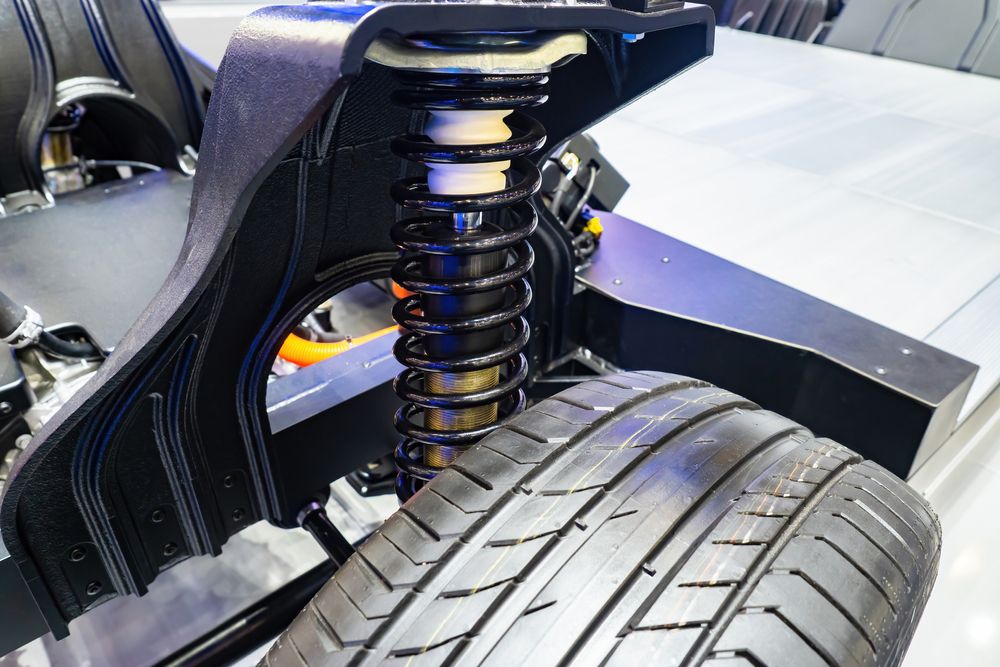Modifying your car can be desirable for several reasons, but it's always
important to consider the impact spring modifications will have on your
warranty. Does lowering your car void the warranty?
Just by lowering your car, you will not void your car's warranty, a
rule established under the Magnuson Moss Warranty Act. However, you can
still lose your warranty on the suspension system in certain
circumstances.
There are several good reasons why you'd want to lower your cars, but it's
always good to look into what is covered by your car's warranty before you
modify your suspension components.
This article will discuss whether modifying your car will void the warranty
and what legal recourse you have if you make a claim.
 Lowered Dodge Challenger
Lowered Dodge Challenger
What Would Void a Car Warranty?
A car warranty is a vehicle service contract in which the provider of the
warranty, usually the manufacturer of the vehicle, agrees to pay for
repairs if a component breaks or prematurely wears.
It does not apply to accidents or everyday wear and tear. Still, it
provides coverage for repairing and replacing defective components.
With that in mind, you can void a car warranty if the vehicle is used
for something other than its intended purpose or if you make
adjustments or install modifications that aren't within your contract
terms.
In some cases, you can void your entire warranty. In general, the following
will void your warranties:
-
Damage caused by the use of an aftermarket part
-
Damage caused by modifications not provided by the dealership.
-
Damage caused by non-approved repairs
-
Damage from neglect or lack of maintenance
Each manufacturer has a different contract outlining what they will and
will not cover.
So make sure you go through the fine print to understand how you can best
hold up your end of the deal and avoid being caught up by denied warranty
claims.
 Signing a car warranty.
Signing a car warranty.
What Modifications Will Void a Warranty?
As mentioned above, each manufacturer has different standards for what will
and will not void a warranty and must prove the cause.
In general, however, most minor modifications will not void your car
warranty, so long as they do not drastically alter the function.
The one big no-no in modifying your ride is altering your odometer. Doing
so denies the dealer from knowing the exact mileage of the car, immediately
voiding your warranty.
In general, the following mods are not likely to void your whole car
warranty:
-
Suspension components
-
Coilovers
-
Springs and shocks
-
Cat-back
-
Wheels
-
Sway bars
-
Short shifter
-
Brakes
-
Exterior mods
You are protected under the Magnusson Moss Warranty Act as a car owner.
This federal law prevents your dealer from arbitrarily voiding your
warranty.
Your dealer is required to prove that the spring modifications are the
direct cause of the malfunction, which means that a modified suspension
system will void your suspension system warranty if you mess with the
stock coil spring.
As it stands, most warranties are voided because the warranty period has
expired, the part itself isn't covered, or the failure of the product was
due to misuse or a lack of proper maintenance.
 Lowered car on city street.
Lowered car on city street.
Are There Benefits To Lowering Your Car?
Many people prefer the look of a lowered ride, but there are some pros and
cons that you should consider before you start installing lowering springs.
1. First, you can improve your handling due to installing lowering springs.
2. Similarly, lowering the ride can reduce drag, improving fuel economy.
Admittedly, the effect is minimal, although modifying the stock suspension
system can help with gas mileage.
3. Lowering and stiffening a vehicle's suspension aids with acceleration
because the rear springs will need to compress less as the load is applied
during the acceleration.
4. Likewise, you can improve braking because of the reduced spring
compression required before the vehicle's full weight is on the tire.
Can Lowering a Car Cause Problems?
There are a few potential problems to consider if you plan to lower your
vehicle.
1. Damage during the installation - A potential concern of
lowering your vehicles is that you can do damage during the lowering
process. Suspension work is very precise and complex, so you should always
leave this particular job to the pros if you want something installed.
2. Misaligned tires - If your wheels are misaligned, you
could have uneven wear on your tires, which is very dangerous if not fixed.
You will often be able to feel this as a pull in your steering wheel as
your tires veer to the side. Similarly, if the tires are misaligned, it can
reduce the lifespan of the entire suspension system.
Because these problems are so common, it's usually best to bring your car
in for an alignment after you've done suspension work to be safe.
Doing Suspension Work Yourself?
Simply by doing the suspension work yourself, you will not void your
warranty due to the Magnuson Moss Warranty Act.
Unless you are mechanically experienced, however, you probably don't want
to be lowering springs yourself since numerous problems can arise from an
incorrect installation—problems will immediately void your suspension
warranty.
 Example of coil overs.
Example of coil overs.
Do Coilovers Void Your Warranty?
Coilovers are used in a suspension system to reduce shock, creating a
smoother ride and allowing you to adjust the height of your ride.
There's nothing wrong with installing lowering springs, and a Coilover
system modification is definitely better than stock springs in many cases;
however, switching to a Coilover may void your suspension warranty claim,
giving the dealers something to point to if it malfunctions.
Even if you have the coilovers put in by a professional, it is still
technically a modified suspension.
The dealership may thus refer to the coilovers as a reason to refuse
payment for any necessary repairs to the coilovers.
Under the Magnuson Moss Warranty Act, you can rest assured that your other
warranties will not be voided unless the seller can establish precisely how
the part caused the issue.
Final Thoughts
Lowering springs does not void your warranty by default. Still, it is quite
likely that if something goes amiss in your suspension system, the
dealership will blame your modifications as an excuse not to foot the bill.
If the dealer can prove the cause of the problem, they will generally void
your suspension warranty, but not other warranties in your car, unless they
can prove that the modifications are the direct cause of the fault.